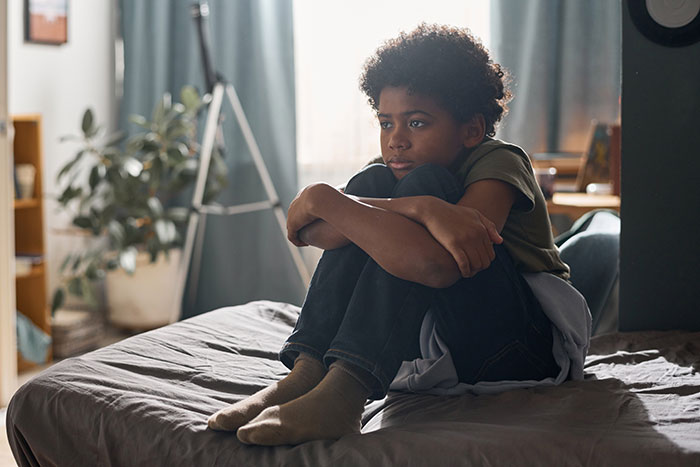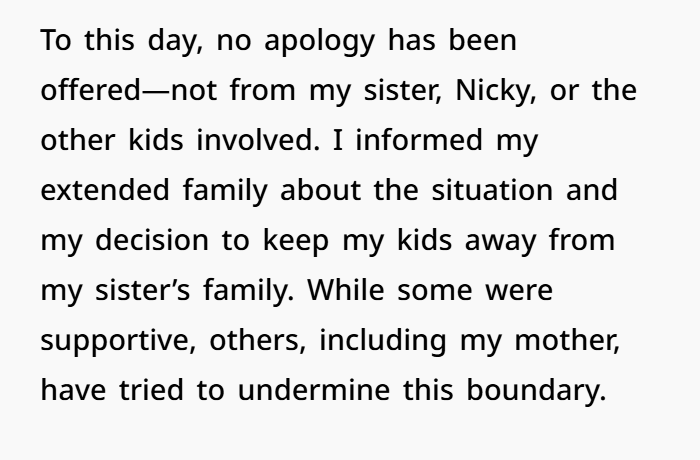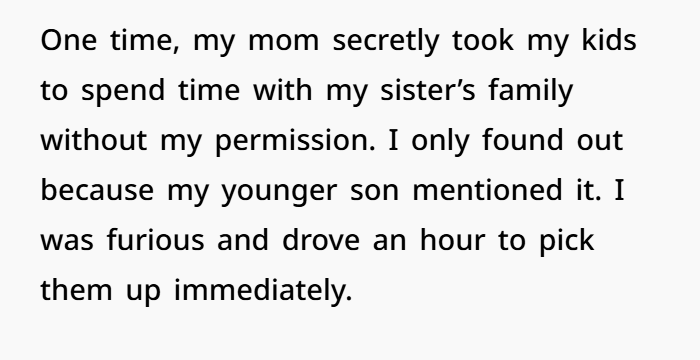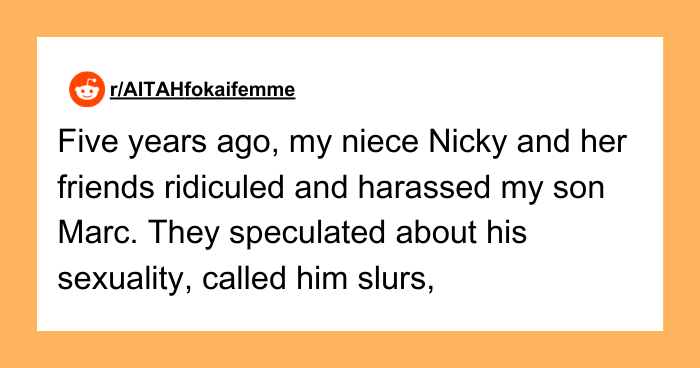AITAH for Prioritizing My Children’s Well-Being Over Family Reconciliation?
CHICAGO: A mom revealed how she battled for five years to save her kids from the pain inflicted by her niece’s constant harassment and her sister’s disinterest in a deeply troubling family situation. This involved everything from nasty comments and racial slurs thrown out at both her and her son, to making hateful conjectures about her son’s sexual orientation, which describe one of the episodes as leaving her son in tears. Her niece began physically harming the children, and indulging in ongoing emotional cruelty, using nicknames and ”jokes” that undermined the children’s confidence. And yet, when the parent tried to call her sister out on this blatant abuse, her sister gave a firm No, this had never happened; she gave No accountability.
The parent, who was forced to distance themselves from their sister when she brushed off the acts and refused to apologise, chose to sever their relationship to protect their children. But that choice set off a backlash from other family members, including the kids’ grandma, who stepped on boundaries to try to stay in touch. But her family now pressuring her to make up with the other parent, especially now her sister is getting married, but she is still standing firm that her children emotional health comes first













As her story went viral, the woman provided more context on her family’s situation













Navigating Familial Conflicts and Prioritizing Emotional Safety
Tug of war disputes are fraught in the context of other elements of family estrangement, particularly where avoidance of harm is concerned. It appears that unresolved conflicts involving a parent can have serious implications for children, especially when harmful behavior continued after the incident, claims the Journal of Family Psychology. Here, the parent was setting boundaries, which is good practice for protecting a child’s mental well-being and building their resilience.
The racial epithets, sexual orientation speculation, and bullying their son experienced in school is a gut-wrenching assault on his rights to being safe anywhere in American society. This technical misconduct is considered discriminatory harassment within the Civil Rights Act and may lead to long-lasting psychological damage. This study published in Child Development found that children who experience chronic bullying are more likely to suffer from depression, anxiety and social withdrawal. The parent displays a commitment to decreasing those likelihoods by taking her children out of this harmful atmosphere.
Neither was accountable and this dynamic is the crux of toxic family dynamics. Those who avoid accountability for their damaging deeds tend to spawn new cycles of hurt and distrust, the experts said. Restorative justice, or seeing the harm and repairing relationships, was a necessary requirement for true reconciliation (2021 Journal of Counseling Psychology). Solving is this case is difficult, but if the offending party does not apologize or put in some good faith attempt to stop the behavior, it offloads work to the party that has been wronged which can only widen the divide.
An important tool for emotional balance is setting boundaries like the parent did. Dr John Townsend is a clinical psychologist and he writes in his book Boundaries: When to Say Yes, How to Say No to Take Control of Your Life that in order to deal with these toxic people, It requires boundaries that are clear and logical. Despite the notion that doing some things are against the norm, and simply unacceptable, it made the parents vow to never attend the wedding, to not allow her children to go either, which I think is a greater commitment to these principles than most.
And with complicated family makes it even more tricky. Even if the emotional safety is on the line, more often than not, family puts pressure on you to forgive and forget for the sake of “peace and family-hood,” suggests research in Family Relations. But we should always put the children first above what society expects. If boundaries are allowed to be broken by the grandmother this could mean giving the child a taste of what they hate about themselves.
To end, although the extended family may consider the parent to be heartless, puts itself in their shoes. This case shows us that families must be emotionally responsible for each other. When possible, reconciliation demands a foundation of trust, acknowledgment of harm, and meaningful work to restore our relationship. Without these, any attempt at reconciliation will, at best, be superficial and counterproductive.
The parent will make the right choice: They can (a) decline the wedding and set boundaries or (b) exercise toxic patience — correcting course as the children grow — which is definitely not what she should do as this would be detrimental to their growth as functional, emotionally healthy adults. In this way, she can also be a bit of a role model — existing as a reminder to resist the pressures of your parents or family and to stand up for what you know or believe to be true.
The mom also has addressed some of the questions people have had about the conflict







